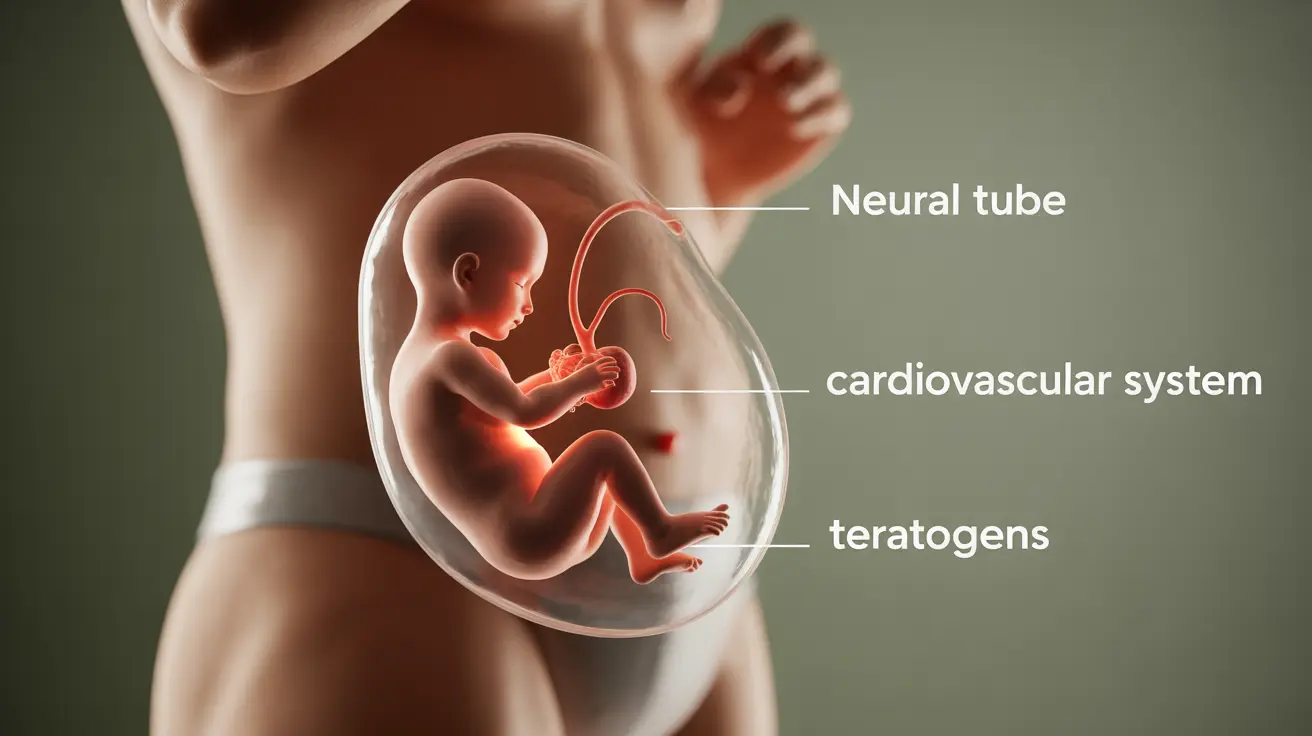During pregnancy, understanding potential risks to fetal development is crucial for expecting mothers. Teratogens are substances that can interfere with normal fetal development and cause birth defects. This comprehensive guide explores what teratogens are, their effects, and how to protect your developing baby from these harmful substances.
Understanding Teratogens and Their Impact
A teratogen is any substance, medication, or environmental factor that can cause abnormal fetal development when a pregnant woman is exposed to it. These agents can affect the developing baby at various stages of pregnancy, potentially leading to birth defects, developmental issues, or pregnancy complications.
Critical Periods of Fetal Development
The impact of teratogens varies depending on the timing of exposure during pregnancy. The first trimester, particularly weeks 3-8 of gestation, is typically the most vulnerable period as major organ systems are forming during this time.
First Trimester Sensitivity
During the first three months, the developing embryo is particularly susceptible to teratogenic effects. This period sees rapid cell division and the formation of vital organs and structures, making it especially important to avoid harmful substances.
Common Teratogenic Substances
Medications
- Thalidomide
- Certain acne medications (isotretinoin)
- Some anticonvulsant medications
- Specific blood pressure medications
- Various cancer treatment drugs
Environmental Factors
- Mercury exposure
- Lead
- Industrial chemicals
- Radiation
- Extreme heat
Lifestyle-Related Teratogens
- Alcohol
- Tobacco products
- Certain illegal drugs
- Some herbal supplements
Preventing Teratogenic Exposure
Taking proactive steps to avoid teratogenic exposure is essential for a healthy pregnancy. This includes:
- Consulting healthcare providers about medication safety
- Avoiding known harmful substances
- Creating a safe home and work environment
- Following dietary guidelines for pregnancy
- Getting vaccinated when recommended
Birth Defects Associated with Teratogens
- Physical malformations
- Growth restrictions
- Developmental delays
- Behavioral issues
- Organ system abnormalities
Frequently Asked Questions
What exactly is a teratogen and how does it affect fetal development during pregnancy? A teratogen is any substance or factor that can cause abnormal development of an embryo or fetus. These agents interfere with normal cell development, potentially causing birth defects, growth problems, or developmental issues.
Which common medications and substances are known to be teratogenic and should be avoided when pregnant? Common teratogenic substances include certain acne medications (isotretinoin), some anticonvulsant drugs, alcohol, tobacco, mercury, lead, and specific blood pressure medications. Always consult your healthcare provider before taking any medication during pregnancy.
During which weeks of pregnancy is the fetus most vulnerable to teratogenic effects? The first trimester, particularly weeks 3-8, is the most critical period for teratogenic effects as major organ systems are developing. However, certain teratogens can affect fetal development throughout pregnancy.
What kinds of birth defects can be caused by exposure to teratogens? Teratogens can cause various birth defects including physical malformations, growth restrictions, developmental delays, organ system abnormalities, and behavioral issues. The type and severity of defects depend on the specific teratogen and timing of exposure.
How can pregnant women reduce the risk of teratogen-related birth defects? Pregnant women can reduce risks by avoiding known teratogens, consulting healthcare providers about medication safety, maintaining a healthy diet, avoiding alcohol and tobacco, and creating a safe environment free from harmful chemicals and substances.




